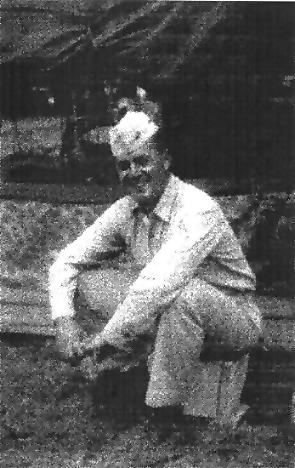
|
I was nineteen when I enlisted in the Marine Corps. I had expected to join a marine combat division after surviving boot camp, but I was assigned to the marine detachment aboard the USS Helena.
On the morning of December 7th, 1941 I had the 0800 to 1200 watch as corporal of the guard. I had relieved the previous watch a little early and was on the fan tail with the marine honor guard for the "raising of the colors."
As the signalmen started to raise the flag, the ship's band began playing the national anthem while the marine guard came to attention with their rifles in the "present arms" position. That was when the Japanese planes started bombing and strafing Ford Island. We had a bird's eye view and when we saw those planes we headed for our battle stations. Mine was in number three turret.
When I got there I was told to go up on the bow to help man the fifty caliber machine guns. The ship had four of these guns manned by the marine contingent, two on the starboard and two on the port side.
I went to the port side guns, but an awning and locked ammunition boxes delayed us in firing at the Jap planes. The awnings, put up while in port, had to be cut down before the guns could get a clear field of fire. The ammunition ready boxes, located near the guns, were locked, and the keys were nowhere around so more time was lost in breaking into those boxes.
The ready boxes contained only a small supply of ammunition, about 750 rounds per gun, not enough for the gunners to keep up an effective, sustained rate of fire. The main supply of ammunition was kept down below in the ammunition magazine and had to be carried topside to the guns by hand. It was stored in canisters weighing about ninety pounds each.
It was extremely difficult to carry even one of those heavy canisters up the ladder and through the hatches to the guns, yet Major Kelly and I, among others, managed to carry two at a time. I don't know how we did it but supplying the gunners with enough ammunition required a superhuman effort by a lot of marines. |

